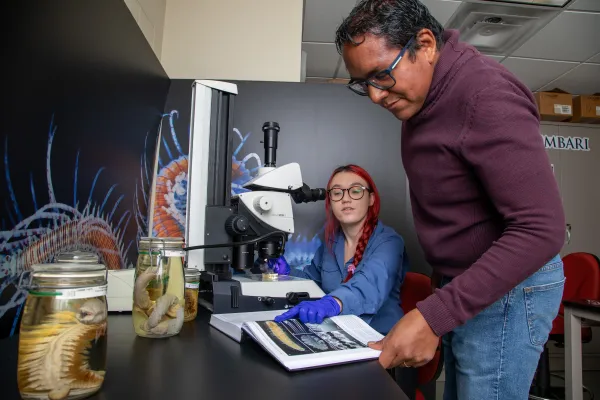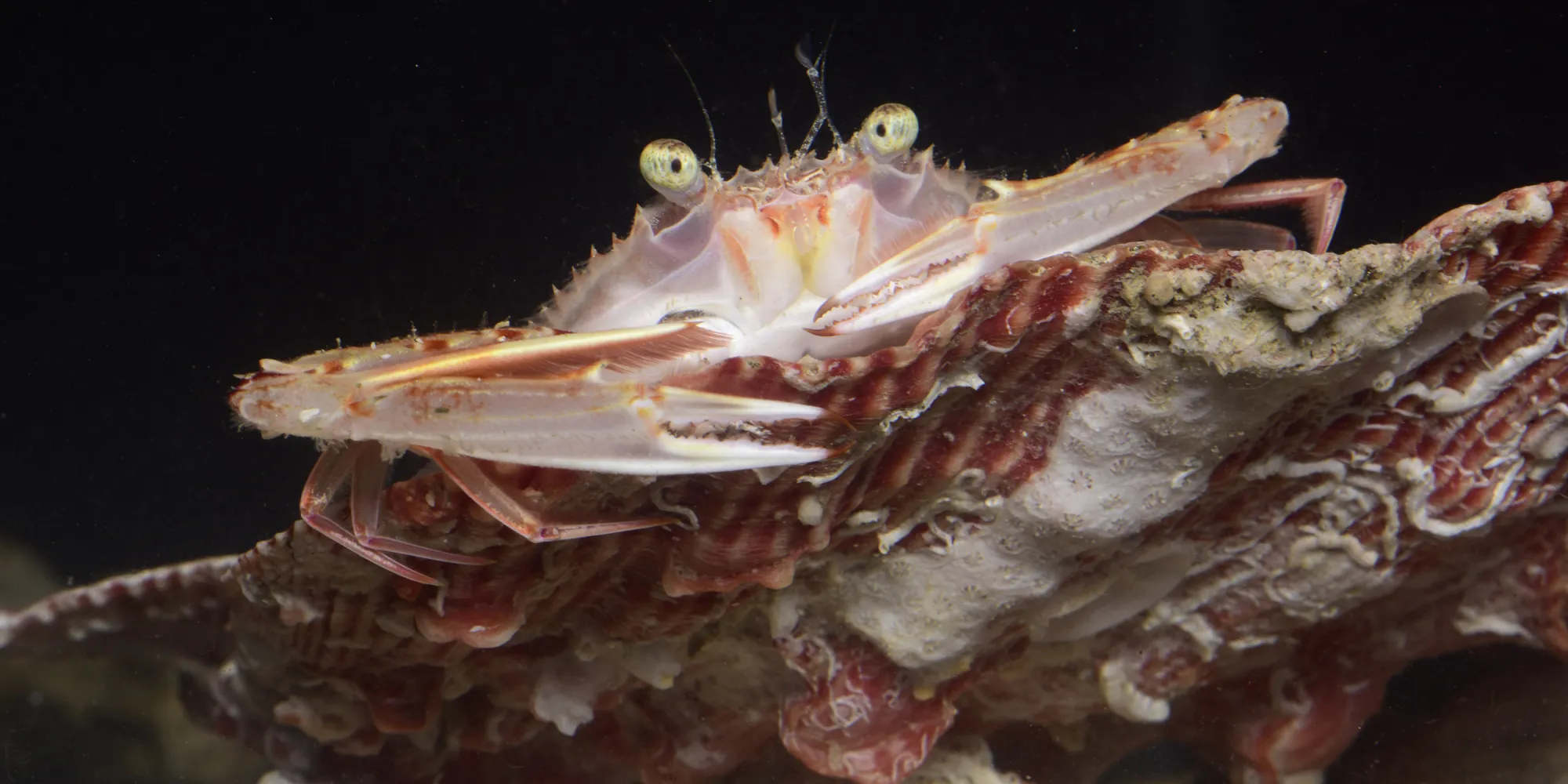
Search

Pettibone Legacy Project

Have you ever wondered what it takes to name a new species? This summer, annelid taxonomist Dr. Victor Conde-Vela (@VíctorConde) worked in the NMNH Department of Invertebrate Zoology on the Pettibone Legacy Project. Among other goals, this initiative aims to describe and digitize type specimens from Dr. Marian Pettibone’s polychaete collections. In collaboration with colleagues Drs. Brett Gonzalez and Karen Osborn, the project proposed six new species of scale worms, one new genus named after the late curator, and three new taxonomic combinations from Pettibone's historical collections.
Conde-Vela is a rare scientist, solely dedicated to the underfunded field of taxonomy, which focuses on describing and classifying all organisms on the tree of life. “I fell in love with taxonomy because of how history is woven into the work" mused Conde-Vela. "When naming a new species, you must familiarize yourself with the group to which it belongs and all the researchers who previously named its relatives. Sometimes this means reading papers from the 1800’s and peeking into the minds of some of the earliest researchers in the field.”
Today, many organizations prioritize "high-impact" research, leaving taxonomists like Conde-Vela and countless unnamed organisms in the shadows. Discovery for discovery’s sake, like the description of new species, is a luxury for labs that continually fight for grant funding. Therefore, taxonomic work often piggybacks on other projects, such as identifying invasive species or monitoring biodiversity in declining ecosystems. “All projects are important” notes Conde-Vela, “but it’s sad that we have to camouflage our research when taxonomy is a vital foundation for all organism-based research.”
Unfortunately, the researchers who dedicate their lives to the discovery of life on Earth are overlooked by scientometrics indexes, ratings that measure the value of research by tracking things like how frequently a research paper is cited, called the “impact factor”. Although all other research referred to in scientific writing must be cited when their information is used, it is not required to cite the research that provided the species names, even though these names and identification of species is critical in just about every other field of biology. As a result, the hard work of taxonomists often goes unnoticed, and the lack of citations can hinder their scientific capital.
Fortunately, the Pettibone Legacy Project is modernizing taxonomic practices by digitizing collections, increasing global access to specimens, and advancing the study and discovery of new life forms. These initiatives shed light on the importance of taxonomy and will hopefully encourage more funding for essential taxonomic research.